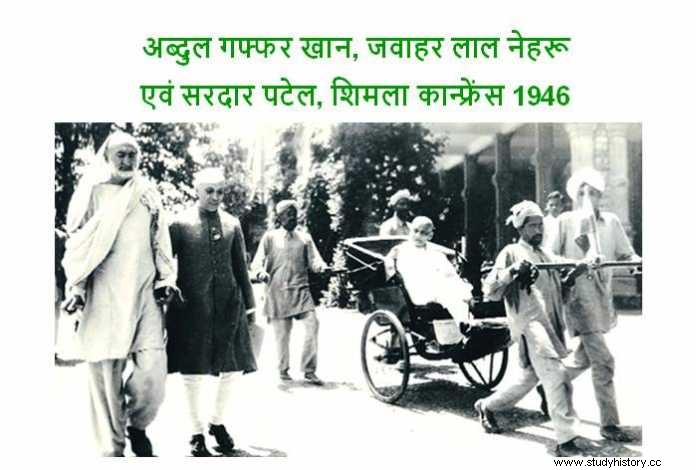
The riots started in Aligarh on 29 March 1946 to create mental pressure on the time the Cabinet Mission was in India. According to a confidential report of the Home Department of the Government of India, this riot started on March 29, 1946, when there were clashes between Muslim students of Aligarh University and a Hindu cloth merchant. 17 people were injured in this riot, out of which one died. Property worth Rs 5 to 10 lakh was estimated to be destroyed due to the burning of shops.
Delhi session of Muslim League
At the time when the Cabinet Mission was talking to various stakeholders in India, in early April 1946, the members of the Legislative Assembly of the Muslim League held a session in New Delhi. In this, the leaders of the League made provocative speeches to put pressure on the members of the Cabinet Mission.
Jinnah threatened to protest in every possible way. He said- 'If any interim arrangement is imposed on the Muslims, I take an oath myself to bear any danger, trial or sacrifice that may be asked of me. em>
At the convention, a pledge was prepared to be read by all Muslim members which said– 'I swear to myself to bear whatever sacrifice, trial or danger I may be called upon. '
Punjabi leader Firoz Khan Noon said- 'Whatever destruction Muslims do, they will also be ashamed of what Genghis Khan and Halaku did.
He also said that if Britain or Hindus did not give Pakistan, then Russia would do this work. Bengal Chief Minister Suhrawardy said- 'Congress should give Pakistan's approval if Hindus want to live in honor and peace.
Frontier leader Qayyum Khan declared- 'Muslims will have no other way but to draw the sword.'
Abdul Hashim, General Secretary of Bengal League said- 'Where justice and equity fail, shining steel will decide the issue.
Shaukat Hayat Khan of Punjab said- 'The fighting caste of my province is just waiting for an opportune moment. You just give us a chance and we will produce a model while the British army is still there.'
The anger of the Muslim League rained mainly on the British government, which was controlled by the British Labor Party. He had shown more sympathy for the Congress than the League in the early years.
Reacting strongly to this attitude of the Muslim League, Jawaharlal Nehru declared that- 'No power on earth, not even the United Nations, can bring Pakistan into existence as Jinnah wants.'
Patel told Muslims that- 'They can get Pakistan only at the cost of civil war between Muslims and Hindus.
Tri-Party Conference in Shimla
On 5 May 1946, the government called a three-party conference in Shimla. In this, it was proposed by the Cabinet Mission that a central government would be formed in India, which would have foreign affairs, defense and communication matters. There will be a grouping of provinces which will deal with other matters and the rest of the powers will also remain with them.
In this conference, the Congress emphasized on the creation of a powerful center and demanded that the proposed Indian Union, in addition to the three subjects suggested by the Cabinet Mission, look into the subjects of currency, customs and such subjects as it suits. The union should be able to recover income as required and take necessary action in the event of failure of the constitution or in times of crisis.
In this resolution of the Congress, the proposals of the Nehru Committee of AD 1928 were repeated. The Muslim League, on the other hand, wanted the organization of groups of powerful Muslim provinces that could form the origins of Pakistan and reduce the power of the federal government to a minimum. Thus in this Simla conference also the opposition between the Congress and the Muslim League remained the same and the opposition to the creation of a separate country for the Muslims by the Congress and the need to create a separate country for the Muslim League remained the same. Hence the Cabinet Mission decided to announce the proposal on its behalf.
